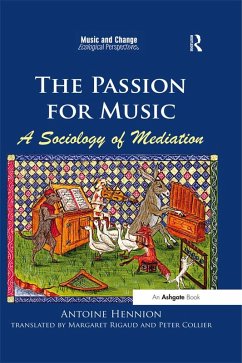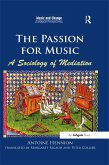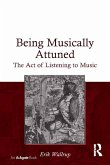Dieser Download kann aus rechtlichen Gründen nur mit Rechnungsadresse in A, B, BG, CY, CZ, D, DK, EW, E, FIN, F, GR, HR, H, IRL, I, LT, L, LR, M, NL, PL, P, R, S, SLO, SK ausgeliefert werden.
"The arguments in this text are worth grappling with, whether or not one works in the area of culture and music. (...) English readers of sociology inhabit a richer space now that they can encounter Hennion's book, based on his dissertation, well after its influence has reshaped the field of the sociology of music." - Shamus Khan, Columbia University
"Hennion's theory of mediation provides a comprehensive approach to the study of music, one which considers the training, production, and consumption of music, without dismissing its aesthetic dimension or the individual participant." - Thomas M. Kitts in VOLUME!









